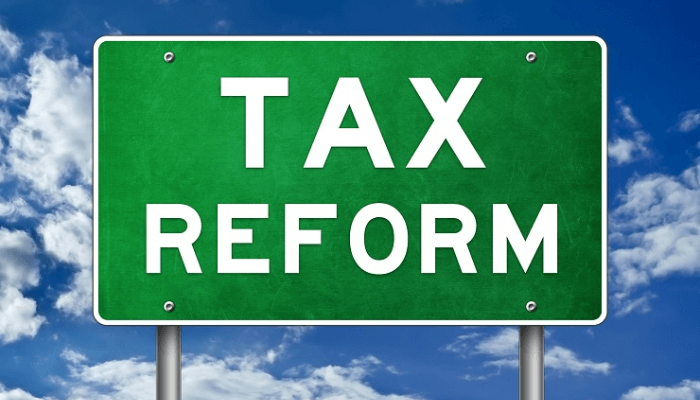
By Fatima Saka
The Senate on Thursday advanced four key legislative proposals under the Tax Reform Bills, seeking to redistribute value-added tax (VAT) revenue, allocating 55% to state governments and reducing the federal government’s share to 10%.
Key Proposals:
Exemption from PAYE for employees earning below ₦800,000 annually.
Zero VAT on exports and essential goods.
Reduction in company income tax from 30% to 25%.
The bills also propose granting input VAT credits on assets, services, and goods consumed by businesses to lower production costs.
Debate Overview:
Senate Leader Opeyemi Bamidele outlined the reforms during plenary, emphasizing their aim to simplify the tax system, reduce burdens on small businesses, and streamline tax collection. He highlighted exemptions for individuals earning below the minimum wage and businesses with an annual turnover of ₦50 million or less.
Bamidele also noted a reduction in company income tax to 25% for at least two years, alongside the consolidation of multiple taxes into a single 2% development levy to fund initiatives like the student loan scheme.
VAT Revenue Redistribution:
The new formula would increase state governments’ VAT share from 15% to 55%, while the federal government’s share drops to 10%. Local governments’ 35% share remains unchanged. Essential items such as food, medical services, and electricity will continue to be exempt from VAT.
Opposition and Support:
Senator Ali Ndume (Borno South) raised concerns about the timing and constitutional implications, arguing for a constitutional amendment before the reforms take effect. In contrast, Senator Mohammed Munguno (Borno North) dismissed Ndume’s objections, advocating for the bills to proceed to public hearings where concerns could be addressed.
Outcome:
Following extensive debate, the Senate unanimously passed the Tax Reform Bills for a second reading. Senate President Godswill Akpabio referred the bills to the Finance Committee, directing it to consult with stakeholders during the public hearing stage to resolve outstanding issues.
These reforms aim to balance fiscal responsibility with economic growth, addressing concerns over tax burdens while promoting investment and job creation.



